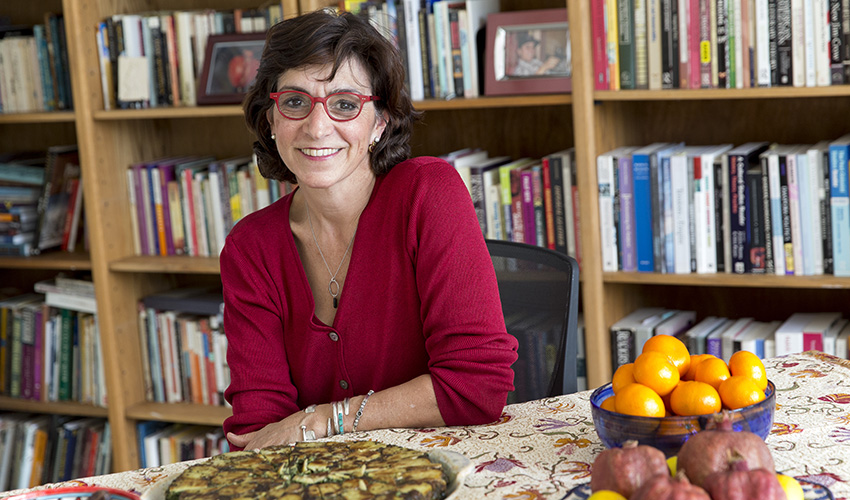Inaugural director of Center for Iranian Diaspora Studies wants to break bread, build bridges

Center launches amid growing tensions between U.S. and Iran
Persis Karim thinks about food a lot — not so rare in a region known as a foodie capital. But she’s interested in how it can serve as a vehicle for cultural exchange. A lot of people’s first exposure to immigrant groups is through their cuisine. From there, they learn about the history, the culture and the conflicts, she says. That's why food is one of several ways Karim, the Neda Nobari Distinguished Chair and director of the San Francisco State University Center for Iranian Diaspora Studies, is engaging the campus and greater community about the Iranian diaspora.
The center, funded by a $5 million gift from Iranian-American alumna Neda Nobari and launched last fall, is the first and only one of its kind at an academic institution. A professor of world and comparative literature and the daughter of an Iranian immigrant, Karim says its purpose is to educate people about the Iranian diaspora community and Iranian culture through lectures, film screenings and other cultural events. She’s also in the process of launching a number of projects, including collaborating on a documentary about Iranian immigration to the Bay Area; hosting an international conference; creating an archive of the Iranian diaspora; and yes, researching food and how it plays an ambassadorial role.
“Dr. Karim has been a catalyst of this field of study long before the discipline formally existed, pioneering a new model of learning that gives precedence to the lived human experiences and complex cultural identities of an often misunderstood and largely understudied population of people,” Nobari said. “It's our hope the center will become a place of academic excellence that inspires a new pedagogical model for learning about Iranians in diaspora through the lens of social sciences, arts and humanities."
As tensions between the U.S. and Iran continue to mount, the role of the center has become increasingly important, Karim says. A ban on travel to the United States from seven majority Muslim nations, including Iran, has made Iranian-Americans feel marginalized. The ban has also served as a rallying cry for the diaspora community to unite, collaborate and study, she adds.
“The work of the center is to create bridges, to facilitate dialogue and to give people tools for understanding how these bigger political and historical events are changing our own country, the United States,” she said. “I want to offer a more human story to a very complicated set of historical circumstances and to draw attention to the richness and the struggle of Iranians who came to the U.S. and are making important contributions to U.S. society.”
Next year marks the 40th anniversary of the Iranian Revolution, which led to the largest transnational migration of Iranians in modern history. At that time, Iran’s monarchy was toppled and Shi’a cleric Ayatollah Ruhollah Khomeini assumed power. Karim is marking the anniversary with the center’s first international conference on Iranian Diaspora Studies, which has caught the interest of many scholars.
“People want to know what happened politically and culturally to the people after the revolution,” she said. “Some people look at Iran nostalgically, but for many young people, the Iran that they know is only in the memories of their parents. They don’t have the same affinity or desire to connect with Iran. They’re rooted in the U.S.”
The diaspora means different things to different people, and a conference and the center are places for all of those disparate voices, she adds.

